
“The Bible shows the way to go to heaven, not the way the heavens go.”
– Galileo Galilei
“There is no harmony between religion and science. When science was a child, religion sought to strangle it in the cradle.”
– R.G. Ingersoll
When I was a resident in psychiatry, over thirty-five years ago, one of my mentors said something that forever changed the way I thought about my profession. “In psychiatry,” he said, “you can do biology in the morning and theology in the afternoon”. He was being a little facetious, but on a deeper level he meant what he said. I understood his message to be simply this: the problems of my patients could be understood and approached from both a ‘scientific’ and a ‘religious’ perspective without fear of contradiction or inconsistency. Yes, I know there are many critics of psychiatry who would challenge its scientific bona fides, but that’s a debate that would take me too far afield. Instead, I would like to use my teacher’s claim as a point of entry into a much broader question: namely, in what ways do science and religion differ, and in what sense do they have features in common?
This story is from the {{IssueName}} edition of {{MagazineName}}.
Start your 7-day Magzter GOLD free trial to access thousands of curated premium stories, and 9,000+ magazines and newspapers.
Already a subscriber ? Sign In
This story is from the {{IssueName}} edition of {{MagazineName}}.
Start your 7-day Magzter GOLD free trial to access thousands of curated premium stories, and 9,000+ magazines and newspapers.
Already a subscriber? Sign In
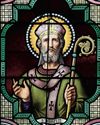
Anselm (1033-1109)
Martin Jenkins recalls the being of the creator of the ontological argument.

Is Brillo Box an Illustration?
Thomas E. Wartenberg uses Warhol's work to illustrate his theory of illustration.

Why is Freedom So Important To Us?
John Shand explains why free will is basic to humanity.
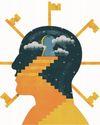
The Funnel of Righteousness
Peter Worley tells us how to be right, righter, rightest.
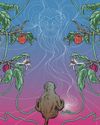
We're as Smart as the Universe Gets
James Miles argues, among other things, that E.T. will be like Kim Kardashian, and that the real threat of advanced AI has been misunderstood.
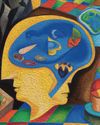
Managing the Mind
Roger Haines contemplates how we consciously manage our minds.
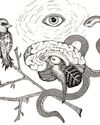
lain McGilchrist's Naturalized Metaphysics
Rogério Severo looks at the brain to see the world anew.

Love & Metaphysics
Peter Graarup Westergaard explains why love is never just physical, with the aid of Donald Davidson's anomalous monism.

Mary Leaves Her Room
Nigel Hems asks, does Mary see colours differently outside her room?
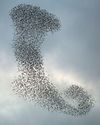
From Birds To Brains
Jonathan Moens considers whether emergence can explain minds from brains.